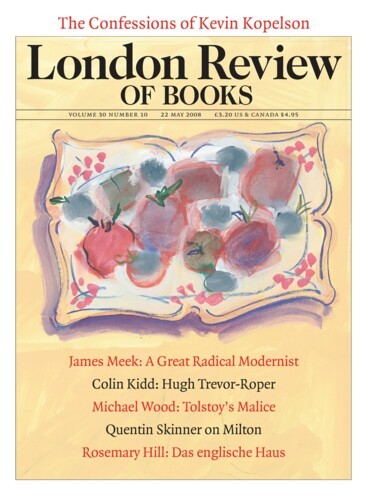Quentin Skinner
Quentin Skinner is Regius Professor of History at Cambridge. He spoke about Milton and liberty at Cambridge in January as part of the 400th-anniversary celebrations of Milton’s birth.
What does it mean to be a free person? Milton
Quentin Skinner, 22 May 2008
After the appearance of Poems of Mr John Milton in 1645, Milton published no further works of poetry until Paradise Lost in 1667. During the intervening decades he devoted almost the whole of his literary energies to attacking the Stuart monarchy and defending the creation of the English commonwealth and, later, the Cromwellian Protectorate. As he repeatedly made clear, moreover, he took...
A Third Concept of Liberty: Living in Servitude
Quentin Skinner, 4 April 2002
My starting point is one of the claims most widely accepted in current discussions about the theory of liberty. There is one overarching formula, we are told, under which all intelligible locutions about freedom can be subsumed. The prevalence of this belief appears to be due in large part to the influence of a single classic article, Gerald MacCallum’s ‘Negative and Positive...
Pieces about Quentin Skinner in the LRB
Dangerous Chimera: What is liberty?
Colin Kidd, 8 May 2025
Whereas Isaiah Berlin saw no necessary connection between liberty and democracy, Quentin Skinner argues that representative democracy is the only form of governance that can guarantee liberty as independence:...
Why It Matters: Quentin Skinner’s Detachment
Ellen Meiksins Wood, 25 September 2008
Is it possible, Quentin Skinner asks, that an entire tradition of political thought, including the most influential conception of freedom in anglophone political theory in the past half-century,...
A Mistrust of Thunder and Lightning: Hobbes
Jeremy Waldron, 20 January 2000
‘He that hath good thoughts, and cannot clearly express them, were as good to have thought nothing at all.’ The quotation is from a speech by Pericles in an English translation of The...
Factory of the Revolution: Quentin Skinner
Blair Worden, 5 February 1998
Quentin Skinner’s short book is an extended version of his Inaugural Lecture as Regius Professor of Modern History at Cambridge. There cannot have been a less contentious succession to that...
Pocock’s Positions
Blair Worden, 4 November 1993
The front cover and title-page conceal the central fact of Political Discourse in Early Modern Britain, that it is a Festschrift for the historian of political thought J.G.A. Pocock. Publishers...
Liberation Philosophy
Hilary Putnam, 20 March 1986
This volume is advertised as ‘confronting the current debate between philosophy and its history’. What it turns out to contain is a series of lectures with the general title...
Grand Theories
W.G. Runciman, 17 October 1985
What is a ‘Grand’ as opposed to a ‘General’ theory, in the human sciences or anywhere else? Nobody talks about Keynes’s Grand Theory of Employment, Interest and...
Machiavelli’s Bite
Stuart Hampshire, 1 October 1981
This is a short book, scarcely more than a long essay, on a subject vastly investigated and written about. Professor Skinner’s powers of compression and command of the evidence provide as...
Read anywhere with the London Review of Books app, available now from the App Store for Apple devices, Google Play for Android devices and Amazon for your Kindle Fire.
Sign up to our newsletter
For highlights from the latest issue, our archive and the blog, as well as news, events and exclusive promotions.



